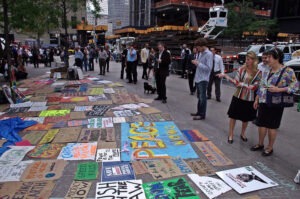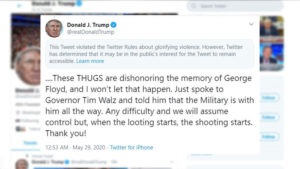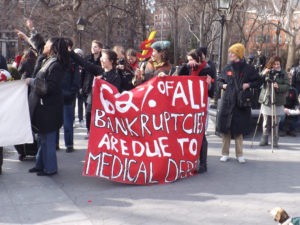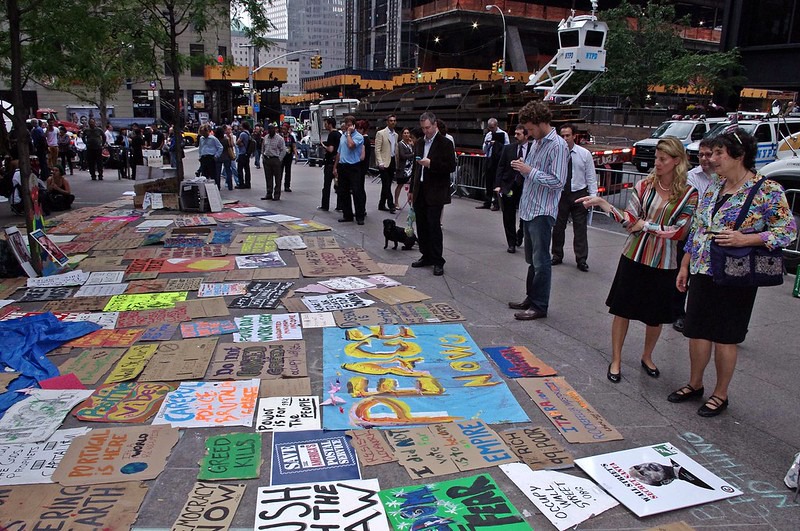October 11, 2011; Source: News@Northeastern | Occupy Wall Street has already shifted the conversation toward the influence of large corporations and the super rich in U.S. politics. By physically directing its focus away from Washington (where the Tea Party focused) and toward Wall Street, the Occupy movement has kicked off a serious national debate on the proper function and value of large corporations in the overall economy, and the role of money in politics.
Spinoff groups are emerging throughout the country. Among the many “Occupy” Facebook pages are “Occupy Lancaster” (PA), with 800 fans; “Occupy Kalamazoo” (MI), with 600; and “Occupy Shreveport” (LA), with 50. It adds up.
Humor and irony are important tools in movement building, and the Occupy Wall Street movement is no different. “Occupy Sesame Street,” in which fans post photo-shopped images of Sesame Street monsters being arrested during protests carrying signs that read “99 percent of the world’s cookies are consumed by 1 percent of the monsters,” currently boasts 28,000 fans.
Sign up for our free newsletters
Subscribe to NPQ's newsletters to have our top stories delivered directly to your inbox.
By signing up, you agree to our privacy policy and terms of use, and to receive messages from NPQ and our partners.
Another humorous image that has reemerged over the past few years is Rich Uncle Pennybags, the top-hatted, mustached fellow from the Monopoly game. A Google search returns 16,000 images. At some point during Monopoly, it becomes obvious to all other players that one winning player is about to take all. Uncle Pennybags provides visual shorthand not just for the accumulation of wealth of a select few (or one) but also the systemic danger to everyone else when this wealth, and accompanying power, becomes too concentrated.
In May, Pew Research Center released a study in which nearly half of Americans said that Wall Street hurts the U.S. Economy, and a greater number said that businesses make too much profit. This sentiment bodes well for Occupy Wall Street. Whether the movement can rally the collective energy of the majority percent to change the U.S. political game may depend on how well it continues its broadly appealing focus on excess corporate greed, power, and influence.
We’d love to hear your thoughts on the images that stand out for you related to this movement. — John Hoffman












